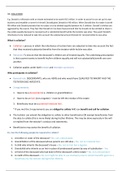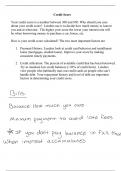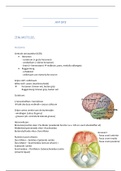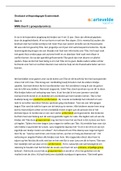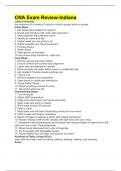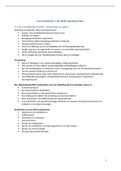Summary
Summary Topic 10 - Collation
- Course
- Law of Succession (RDL2003H)
- Institution
- University Of Cape Town (UCT)
Summary study book The Law of Succession in South Africa of Juanita Jamneck, Christa Rautenbach (Chapter 10) - ISBN: 9780199045426 (Collation)
[Show more]
